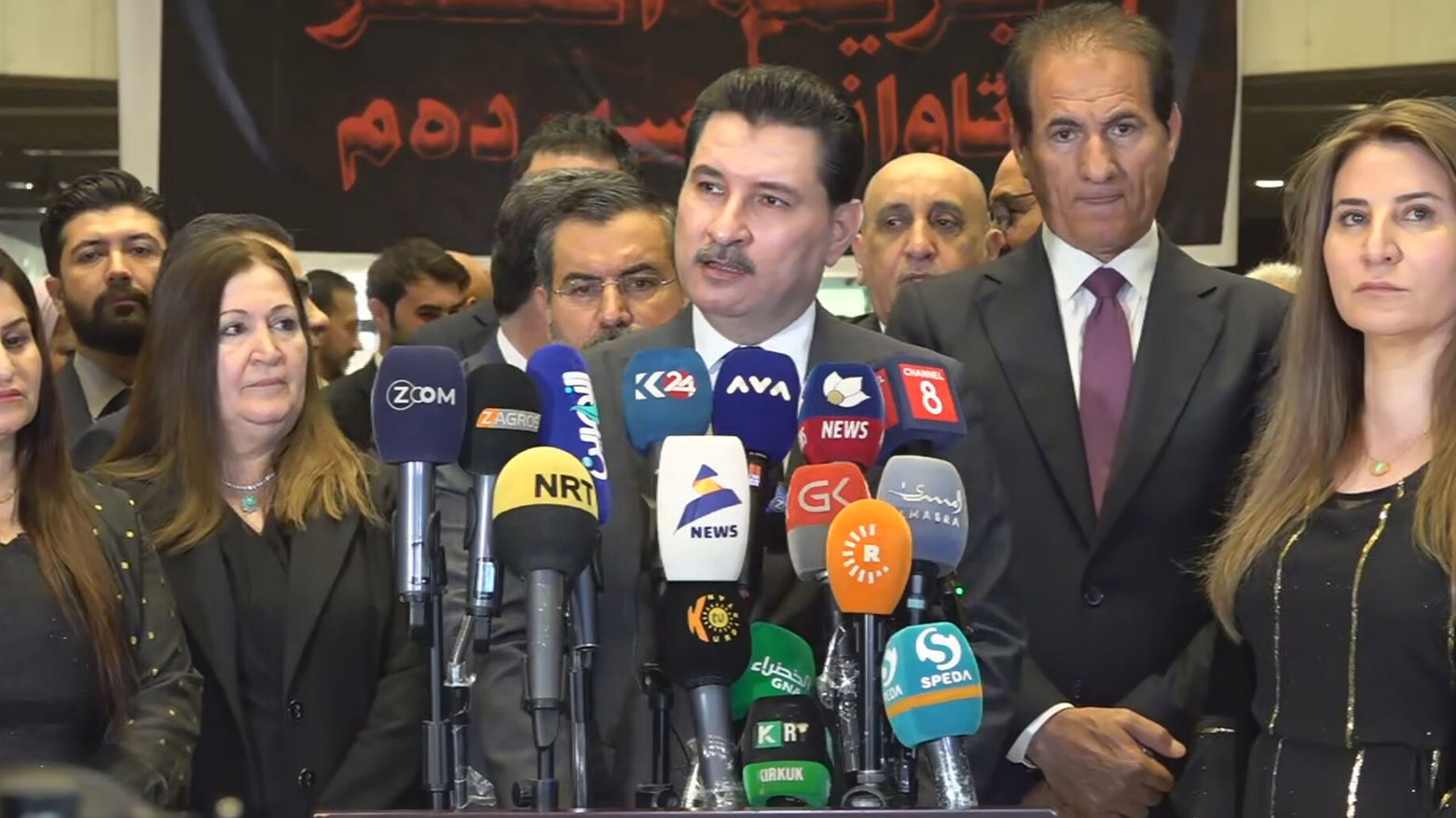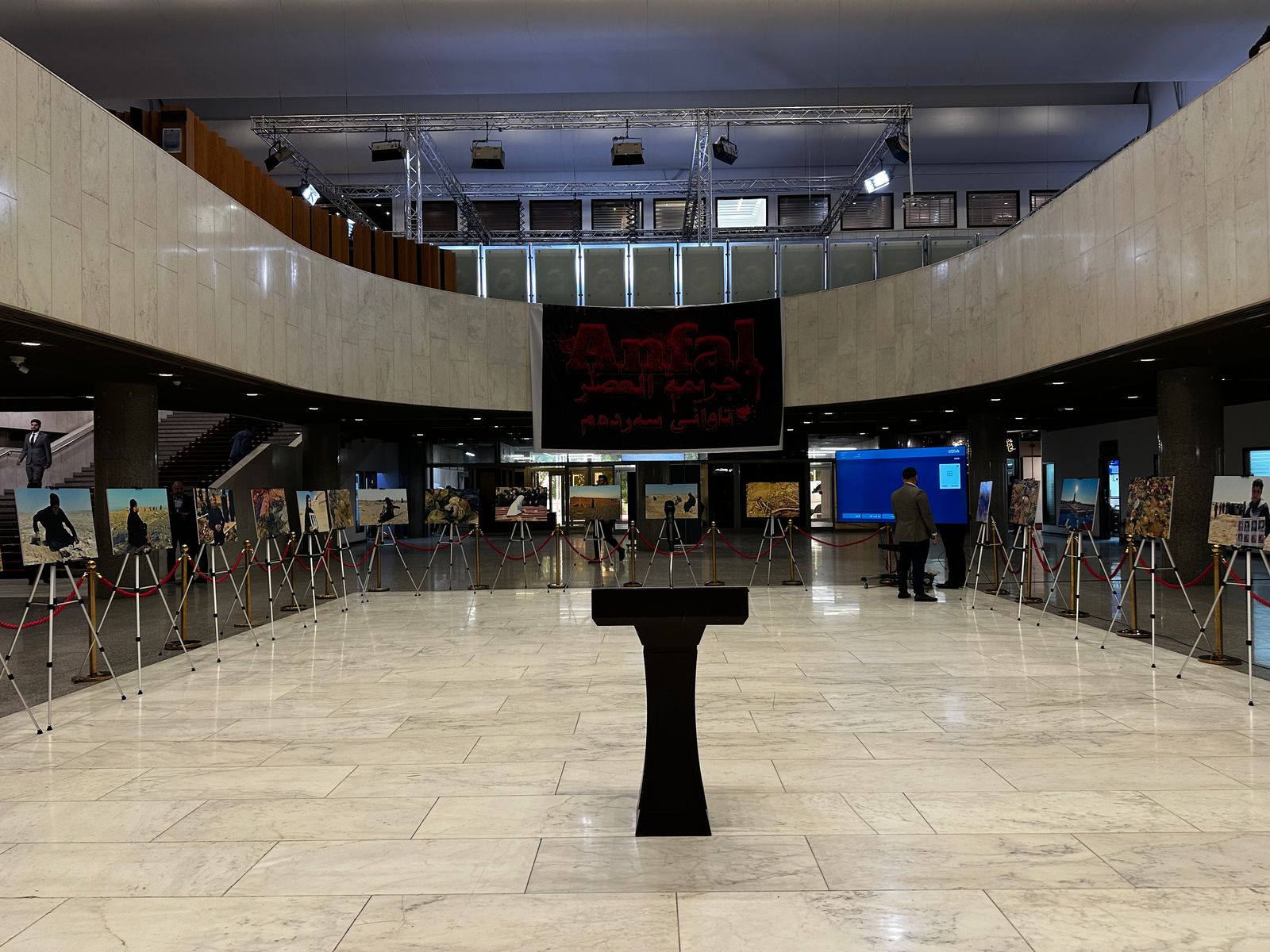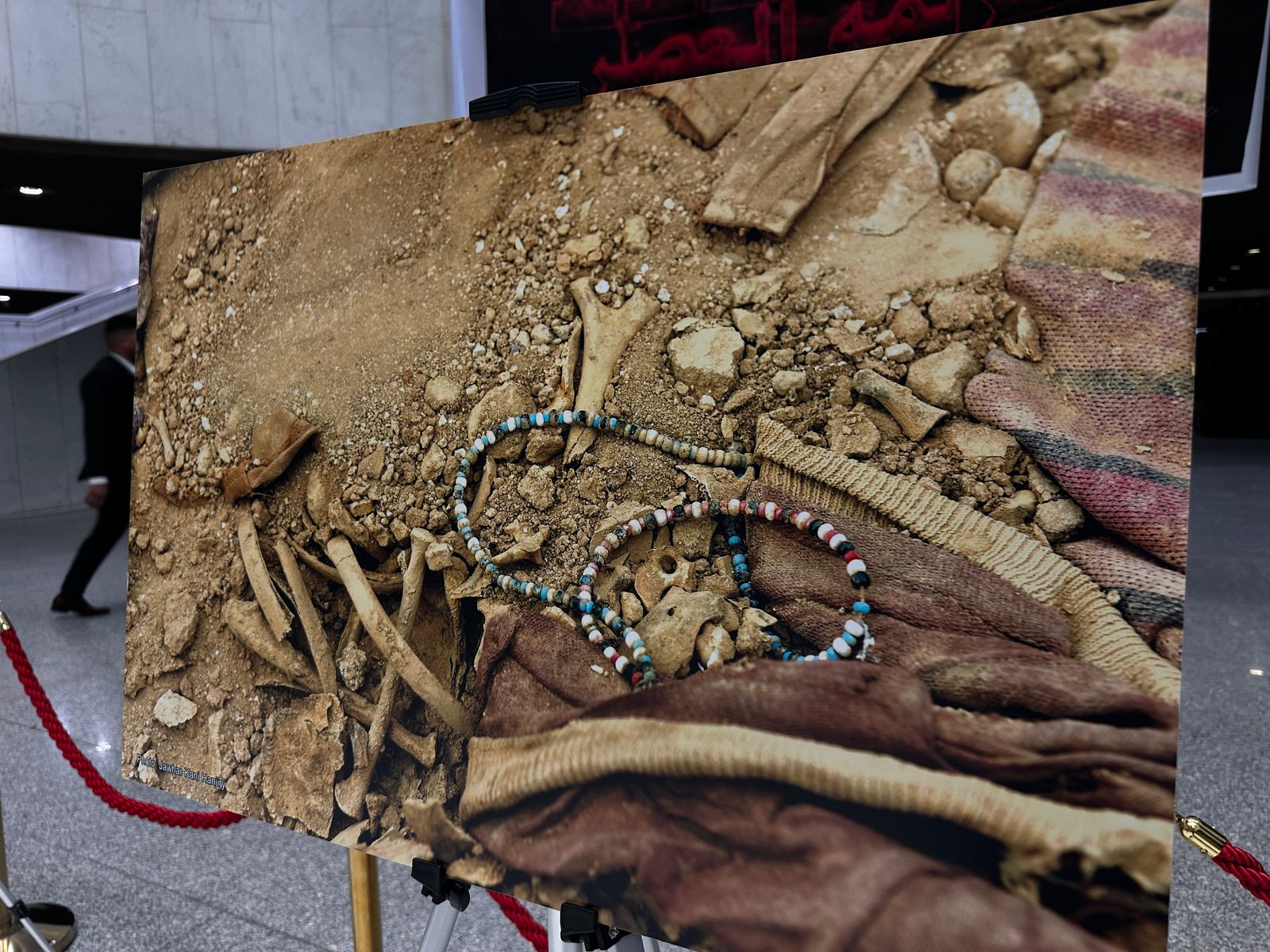Deputy Speaker Slams Federal Inaction on Anfal Reparations
"Unfortunately, more than 20 years after the fall of the Ba’ath regime, the suffering and trauma of the Anfal campaign remain unaddressed," Abdullah stated. "The federal government has not taken any serious or concrete steps to compensate the victims' families."

By Kamaran Aziz
ERBIL (Kurdistan24) — As the Kurdistan Region marked the 37th anniversary of the Anfal genocide, Deputy Speaker of the Iraqi Parliament Shakhawan Abdullah delivered a forceful rebuke of Baghdad’s continued failure to compensate the victims’ families, despite two decades having passed since the fall of Saddam Hussein’s regime.
Speaking at a press conference in Baghdad on Monday, , representing the Kurdish parliamentary factions in Iraq’s Council of Representatives, accused successive federal governments of abandoning their legal and moral responsibilities toward the survivors of one of Iraq’s most heinous crimes.
"Our goal in remembering the Anfal crime is to remind those currently in power in Baghdad that all the atrocities committed against the people of Kurdistan were simply because of our identity—because we are Kurds," Abdullah stated.
"If even now, there are still mindsets that continue to act against Kurds based on ethnic discrimination, they must be reminded of the Anfal campaign and all the genocides throughout history that have targeted our people. These attempts failed to erase us—and we have continued our struggle to secure our legitimate rights, and will continue to do so," he added.
Thirty-seven years ago, in one of the darkest chapters of modern Middle Eastern history, the Ba’athist regime of Iraq unleashed a brutal wave of genocidal violence against the Kurdish people. The Anfal campaign, carried out in eight stages between 1986 and 1989, resulted in the murder of more than 182,000 Kurdish civilians, the destruction of over 4,000 villages, and the use of chemical weapons against entire communities. The third stage alone, which took place between April 7 and April 20, 1988, devastated the Germian and Chamchamal regions, erasing entire communities and displacing thousands.

The campaign, orchestrated by Saddam Hussein and Ali Hassan al-Majeed, also known as "Chemical Ali," was designed to eliminate the Kurdish population under the guise of counterinsurgency. Entire families were buried alive, villages flattened, and communities gassed in one of the most chilling examples of state-led genocide in the 20th century.

Although the Iraqi High Criminal Court recognized the Anfal campaign as genocide and sentenced several high-ranking officials to death or life imprisonment in 2007, the suffering of survivors remains largely unacknowledged by the Iraqi state. "Unfortunately, more than 20 years after the fall of the Ba’ath regime, the suffering and trauma of the Anfal campaign remain unaddressed," Abdullah lamented. "The federal government has not taken any serious or concrete steps to compensate the victims' families."
Abdullah underscored that the Iraqi Parliament has both a constitutional duty and a human obligation to act, but insisted that the ultimate burden lies with the federal executive. "The Iraqi Parliament has a legal and moral obligation to redress the harm and compensate the families of Anfal victims. The greater responsibility, however, lies with the federal government—to provide reparations, recover the remains of the victims, and rebuild their destroyed villages."
He noted that despite renewed efforts, including a proposal under Article 140 submitted last year, no meaningful progress has been made. "Last year, under Article 140, we proposed a plan to compensate Anfal victims’ families. But sadly, after more than two decades, no real compensation has been provided."
Prominent Kurdish leaders also weighed in on the anniversary. President Masoud Barzani called for unity and national resolve, declaring, "The best tribute to the martyrs of Anfal is for all of us to stand united in serving and defending our homeland, and in laying the foundations for a prosperous future for our people."
Prime Minister Masrour Barzani echoed those sentiments, stating, "It is the duty of the federal government to provide just compensation—both material and moral—to the families of the Anfal victims and all others who suffered under the Ba'ath regime."
Kurdistan Region President Nechirvan Barzani described Anfal as "one of the most brutal acts of genocide in history," and called on Baghdad to fully implement the court's ruling and support the families of victims through reconstruction, repatriation of remains, and meaningful justice.
Iraqi Prime Minister Mohammed Shia al-Sudani acknowledged the atrocities in a statement marking the day, describing Anfal as “brutal massacres” and declaring that Iraqis are now united in a journey of "reconstruction and development" that leaves behind the tyranny of the past.
April 14 is recognized each year in the Kurdistan Region as a national day of remembrance. Ceremonies, speeches, and memorials are held to honor those lost and to renew calls for justice, accountability, and full national and international recognition of the Anfal campaign as a crime against humanity.
As Kurdish voices grow louder in demanding justice, the silence from Baghdad remains a stark reminder of the enduring wounds left by Anfal—and the unfulfilled promise of accountability, recognition, and redress. Today, as the people of Kurdistan commemorate the 37th anniversary of this genocide, their call for justice resounds louder than ever.